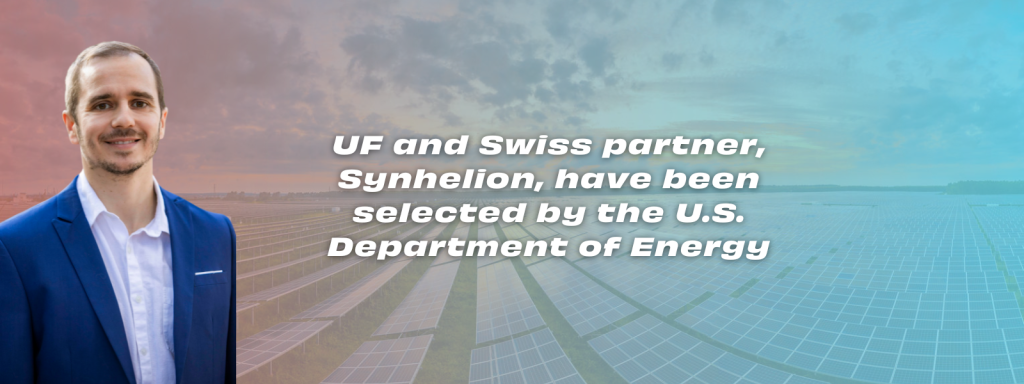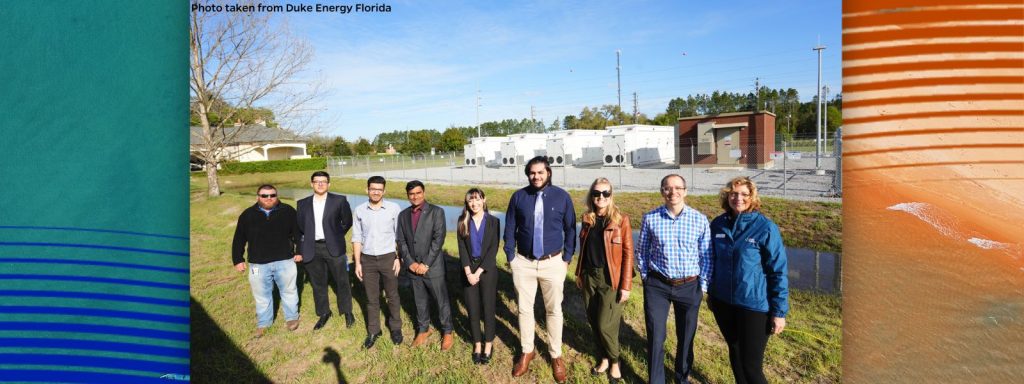In today’s diverse energy landscape, next-generation energy conversion and storage technologies are key to ensuring that end users have access to reliable, efficient, resilient and green energy sources. The end-use energy sources can take on a variety of forms, including electrical power, heat, fuels or other energy vectors such as H2 or sustainable aviation fuels, and more. As we transition from an energy sector primarily reliant on fossil-based fuels, to one based on renewable energy, traditional and new energy conversion technologies will become ever more important because of the intermittent nature of renewables, but relatively constant demand. New heat pump and refrigeration technologies will have a larger role in a society driven by renewable energy; and integrating cost effective and efficient energy conversion and storage methods is key. Battery technologies, thermal storage, chemical storage and mechanical storage all offer ways to bottle the energy for later use on demand, the use of each depending on geographical, time-demand, and end-use considerations.
Areas of Excellence
- Battery Technologies
- Combustion
- Energy Conversion and Storage
- Energy Efficiency and Cooling
- Energy Transport
- Gas to Power
- Gasification Technologies
- Propulsion
- Solar Energy and H2
Associated Centers and Institutes
Industrial Assessment Center at the University of Florida (UF-IAC)
Group Email
energy-conversion-storage@mae.ufl.edu
Related Faculty

After obtaining my Bachelor’s in Engineering in 2002 with a minor in Mathematics, at the age of 19, I received a National Science Foundation Graduate Research Fellowship with which I obtained my Master’s from the University of Cambridge in 2004 and my PhD at the University of Groningen in 2005 at the age of 21, becoming the youngest PhD in The Netherlands.…

Additional Roles
Assistant Director of the Industrial Assessment Center, and Assistant Director of the Mobile Energy Laboratory at the University of Florida. He is also an Affiliate Faculty at the Center for Latin American Studies
Education
BS, University of Chile, 1989
Ph.D. University of Florida, 1998
Professional Memberships and Fellowships
Association of Energy Engineers, Member
Research Interests
Industrial energy management and productivity, energy efficiency and optimization, energy policy, new energy sources and materials, chemical reactivity and structure optimization at molecular level.…

Dr. Chung is currently the Andrew H. Hines, Jr./Progress Energy Eminent Scholar Chair Professor at the University of Florida. He joined the University of Florida in 1998 after 19 years on the faculty at the Washington State University. Dr. Chung holds both B.S. and M.S. degrees in Nuclear Engineering and had spent 6 years working as a nuclear reactor safety engineer in the industry before receiving his Ph.D.…

Claire Grégoire is an Assistant Professor in the Department of Mechanical and Aerospace Engineering at the University of Florida. She received her Ph.D. from Texas A&M University, US, and her M.S. from the University of British Columbia, CA.…

Ryan Houim received his BSME from North Dakota State University and his MS and Ph.D. degrees from the Pennsylvania State University. He was a National Research Council post-doctoral fellow at the Naval Research Laboratory and a Research Assistant Professor at the University of Maryland prior to joining the University of Florida. His research is focused on understanding the dynamics of multiphase and chemically reactive flows using numerical simulation techniques. …

Originally from Korea, Sunjae moved to West Lafayette, IN in 2020 for his doctoral study at Purdue. Following his graduate work, he started as an Assistant Professor in the Department of Mechanical & Aerospace Engineering at the University of Florida in January 2026.
His research focuses on understanding the effects of gravity on multiphase thermal-hydraulic characteristics, with a particular emphasis on cryogenic flow boiling physics.…

Dr. William. E. Lear is an Associate Fellow of AIAA, recipient of the 2014 Energy Systems Award from AIAA, former Chair of the Terrestrial Energy Systems technical committee, and has served in multiple roles with the International Energy Conversion Engineering Conference, including Technical Program Chair. His areas of research are novel distributed generation systems, advanced turbomachinery, and low temperature fuel cells.…

Education
Ph.D., 2006, University of Maryland
Research Interests
Micro/nanoscale transport and nanotechnology for energy science and health applications; nanoengineering of functionalized membranes for energy conversion and storage and filtration/separation applications; heat and mass transfer in micro/nanostructures; microfluidic reactor platforms for fundamental energy research and reaction engineering; portable power
Professional Memberships and Fellowships
American Association for the Advancement of Science, Member
American Society of Heating, Refrigeration and Air-Conditioning Engineers, Member
The American Society of Mechanical Engineers, Fellow 2020
Institute of Electrics and Electronics Engineers, Member

Jing Pan received his PhD from Purdue University in 2017. His research focuses on developing nanoscale machineries for biotechnology applications. He conducted his postdoctoral research at Stanford University School of Medicine, where he demonstrated translational impact of his work in novel biosensors and molecular diagnostics.
Education
Postdoc, 2019 Stanford University
Ph.D, 2017 Purdue University
B.S, 2011 Xi’an Jiaotong University
Teaching Interests
Heat and Mass Transfer; Classical and Statistical Thermodynamics; Modern Optics and Imaging System Engineering; Biodesign
Research Interests
Macromolecular Machines; Directed Evolution; Self-assembly and self-organization; Bio-nanotechnology; Synthetic Biology; Medical Technology.

Professor Subrata Roy studies ionized gas physics and its various applications: (1) Atmospheric plasma actuators for flow mixing, propulsion, and turbulent flow control; (2) Hypersonic flows; (3) Space propulsion; and (4) Hydrodynamic models for micro and nanofluidics by incorporating Knudsen’s theory. Prof. Roy is a Fellow of the National Academy of Inventors (NAI), a Distinguished Visiting Fellow of the Royal Academy of Engineering, a Fellow of the Royal Aeronautical Society, a Fellow of the ASME, and an Associated Fellow of the AIAA.…

Jonathan Scheffe is an Associate Professor in the Department of Mechanical and Aerospace Engineering at the University of Florida. Prof. Scheffe’s research is focused on the conversion and storage of solar energy in the form of renewable fuels/electricity through thermochemical routes. He is the former chair of the American Society of Mechanical Engineers (ASME) Solar Energy Division and has co-authored more than 35 peer received publications in the field of solar thermal energy conversion.…

Education
Ph.D., 2014, University of Florida
Teaching Interests
HVAC Systems, Energy Management

Dr. SA Sherif is Professor of Mechanical and Aerospace Engineering and MAE Excellence Term Professor at the University of Florida. He is a Life Fellow of the American Society of Mechanical Engineers (ASME); a Life Fellow of the American Society of Heating, Refrigerating and Air-Conditioning Engineers (ASHRAE); a Fellow of the Royal Aeronautical Society; a Fellow of the American Society of Thermal and Fluids Engineers (ASTFE); an Associate Fellow of the American Institute of Aeronautics and Astronautics (AIAA); a Life Member of the American Society for Engineering Education; a Vice President of Commission B-2 of the International Institute of Refrigeration; a Member of the Board of Directors of the International Association for Hydrogen Energy; and a Founding Member of the Board of Directors and Vice President of Programs for the American Society of Thermal and Fluids Engineers (ASTFE).…

Dr. Jingjing Shi’s research focuses on understanding energy transport and conversion to solve thermal challenges in different systems, with an emphasis on wide and ultra-wide bandgap semiconductor devices for future power and radio-frequency applications. Her work utilizes multiscale modeling and experimental methods to understand effects of different mechanisms like atomistic structures and defects on energy transport in materials and at interfaces.…

Youngsup Song is an Assistant Professor in the Department of Mechanical and Aerospace Engineering at the University of Florida. He obtained his Ph.D. in Mechanical Engineering from MIT, where he investigated multiphase heat transfer. Following his graduate work, he trained as a postdoctoral researcher at Lawrence Berkeley National Laboratory before joining the University of Florida.…

Professor Xin Tang received his Post-doctoral training from Harvard University and Ph.D. from University of Illinois at Urbana-Champaign. His research centers at the interface of engineering, physics, chemistry, and biology. His lab studies cell and molecular mechanics in cancer, cardiovascular system, and neurons; unconventional mechano-electrophysiology; quantitative in vivo/vitro functional bio-imaging; AI/ML-powered bio-nanotechnology; and development of new biophysical tools to probe biological function/structure.…

Professor Emeritus (Department Time: 2018 – 2024)
Professor Trainham’s research interests are in renewable energy. Before joining UF, Trainham spent most of his professional career in industry: four years as chief technology officer JDC Phosphate, four years as vice president, distinguished fellow and director of the Research Triangle Solar Fuels Institute at RTI International, senior vice president of Sundrop Fuels (a solar fuel company), served as global vice president of Science and Technology at PPG Industries, and had a 25-year career at the DuPont Company.…

Dr. Matthew J. Traum is an experienced educator, administrator, fund raiser, and researcher serving the Department of Mechanical and Aerospace Engineering at the University of Florida as an instructional faculty member. Traum serves as Principle Investigator of UF’s GatorKits Laboratory focused on pedagogical research and best practices for hands-on kit-centered STEM instruction. A serial entrepreneur and inventor in the Ed Tech, Energy Tech, Bio Tech, and Ag/Food Tech industries, Dr.…

Lawrence Ukeiley is currently a Professor in the Mechanical and Aerospace Engineering Department at the University of Florida. His primary research interests are in experimental fluid dynamics and turbulence as related to flow control, aeroacoustics, fluid structure interactions and the development of low order models. He received his B.S. in Mechanical Engineering from Alfred University in 1989 and his MS and PhD in Mechanical Engineering from Clarkson University in 1992 and 1996 respectively.…


